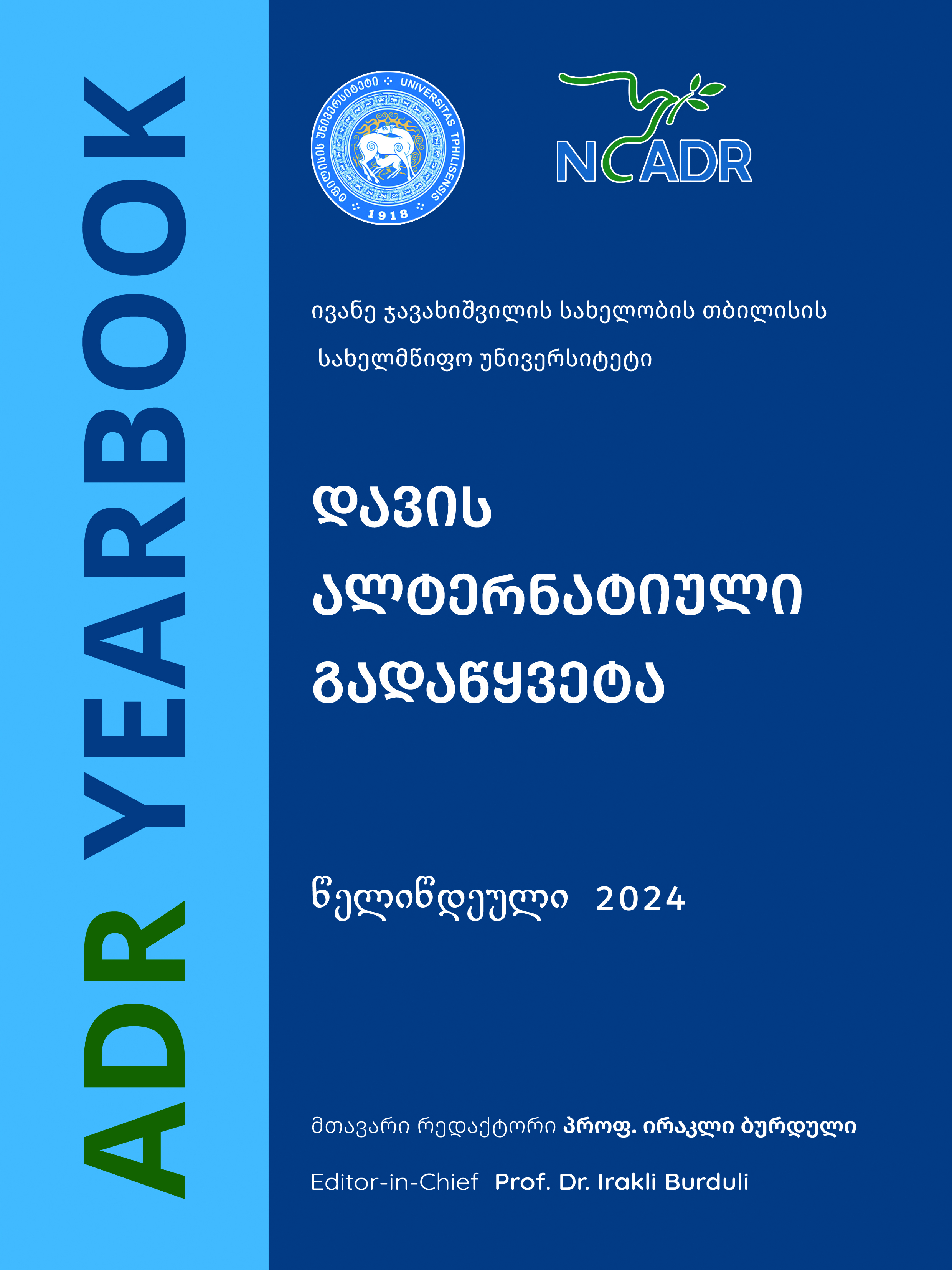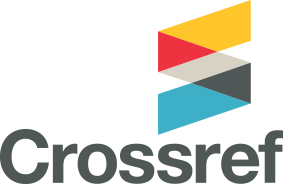Conceptual Models of Evaluative and Facilitative Mediation and Accompanying Ethical Challenges
DOI:
https://doi.org/10.60131/adr.1.2024.8344Keywords:
Facilitative mediation, evaluative mediation, mediation ethics, mediator neutrality, party autonomy, informed decision-making, quality process.Abstract
Facilitative and evaluative mediation models represent the two most common approaches in the theory and practice of mediation. Their differing mechanisms significantly influence the mediation process and its outcomes. This paper explores the theoretical foundations of these models, their application in practice, and the accompanying ethical challenges.
The paper focuses on the impact of the mediator's chosen style on the autonomy of the parties, their procedural guarantees, and the outcomes of the process. Mediators may encounter numerous dilemmas during the mediation process, as they are obligated to facilitate informed decision-making by the parties without compromising their neutrality. At the same time, mediators must ensure a quality process where the parties can act within their autonomy and fully benefit from the procedural guarantees offered by mediation. It is also noteworthy how evaluative and facilitative mediation models align with the standards established by the mediation code of ethics, considering the balance between conflict resolution and maintaining fairness. Understanding this is essential to ensure that mediators maintain ethical standards and, at the same time, effectively guide the parties toward negotiations.
The purpose of this paper is to review the above-mentioned issues and evaluate how contemporary mediation practices address these challenges.
References
Law of Georgia „on Mediation“, ssm, 18/09/2019.
Civil Procedure Code of Georgia, Parliamentary Gazette, 47-48, 14/11/1997.
LEPL "Mediators' Association of Georgia”, Code of Professional Ethics for Mediators, approved by the General Assembly on April 24, 2021.
Directive 2008/52/EC of the European Parliament and of the Council of 21 May 2008 on Certain Aspects of Mediation In Civil and Commercial Matters.
Ethical Guidelines for Mediators, Law Council of Australia, 2018.
Model Standards of Conduct for Mediators, AAA, ABA, ACR, 1994, Revised 2005.
United Nations Convention on International Settlement Agreements resulting from Mediation (The “Singapore Convention on Mediation”).
UNCITRAL Model Law on International Commercial Mediation and International Settlement Agreements Resulting from Mediation, with Guide to Enactment and Use 2018.
UNCITRAL Notes on Mediation, United Nations, Vienna 2021.
Anderson D. Q., Facilitative Versus Evaluative Mediation - Is There Necessarily a Dichotomy? Asian Journal on Mediation, 2013, 66-67, 69-74.
Alfini J.J., Barkai J., Baruch Bush R., Hermann M., Hyman J., Kovach K., Liebman C., Press Sh., Riskin L. L., What Happens When Mediation is Institutionalized?: To the Parties, Practitioners and Host Institutions, Ohio State Journal on Dispute Resolution, Vol. 9:2, 1994, 309 - 311, 314 -315, 319, 325.
Baksa, G., Different Mediation Styles and Their Use in Family Mediation, Jogi Tanulmanyok, 2012, 250, 254.
Batiashvili I., The Mediation Process, its Principles and Challenges in Georgia, Journ., “Alternative Dispute Resolution – Yearbook 2022“ (Bilingual edition), TSU Publishing, Vol.11, № 1, 2022, 10-11,14.
Brooker P., An Investigation of Evaluative and Facilitative Approaches to Construction Mediation, Structural Survey, Vol. 25 No. 3/4, 2007, 227.
Catanzaro T., Improving Evaluation in Mediation: How Predictive Analytics Can Be Used to Improve Evaluative Mediation, American Journal of Mediation, Vol. 15, 2022, 96-101.
Chitashvili N., Framework for Regulation of Mediation Ethics and Targets of Ethical Binding, Journal of law, N1, 2016, 25, 31, 32.
Chitashvili N., Fair Settlement as Basis for Ethical Integrity of Mediation, Journ. „Alternative Dispute Resolution – Yearbook 2016“ (Bilingual edition), TSU Publishing, Vol.5, No. 1, 2016, 11,14.
Chitashvili N., Specificity of Some Ethical Duties of Lawyer Mediator and Necessity of Regulation, Journal of Law N2, 2016, 33.
Chitashvili N., The Mediator's Dilemma on the Edge of the Principles of Party Autonomy and Justice, Yearbook of the Center for Law and Economics, Third edition, 2022, 82-95 (in Georgian).
Erbe N., The Global Popularity and Promise of Facilitative ADR, Temple International & Comparative Law Journal, Vol. 18, № 2, 2004, 356.
Hansen T., The Narrative Approach to Mediation, 2003.
Hui Han E.C., Moving Beyond the “Facilitative” and “Evaluative” Divide - Considering Techniques That Can Further the Goals of Mediation, Asian Journal on Mediation, 2013, 40 -43.
Kandashvili I., Mediation - An Effective Means of Dispute Resolution, Practical Guide, Tbilisi, 2022, 51 (in Georgian).
Kidner J., The Limits of Mediator Labels: False Debate between Facilitative versus Evaluative Mediator Styles, Windsor Review of Legal and Social Issues, vol. 30, 2011, 167.
Kovach K.K., Love L.P., “Evaluative” Mediation is an Oxymoron, Alternatives Vol 14. No.3, 1996, 31, 32.
Lakhani, M. A., "Ethical Mediation." Advocate (Vancouver Bar Association), vol. 79, no. 6, 2021, 849.
Lande J., Real Mediation Systems to Help Parties and Mediators Achieve Their Goals, Cardozo Journal of Conflict Resolution, Vol. 24, 2023, 347, 352 - 354.
Levin M.S., The Propriety of Evaluative Mediation: Concerns about the Nature and Quality of an Evaluative Opinion, Ohio State Journal on Dispute Resolution, Vol. 16, no. 2, 2001, 268, 274.
McDermott P. E., Discovering the Importance of Mediator Style – An Interdisciplinary Challenge, Negotiation and Conflict Management Research, Vol. 5, No. 4, 2012, 346-350.
Munjal D., Tug of War: Evaluative versus Facilitative Mediator, Pretoria Student Law Review, 6, 2012, 69 - 74, 76-78.
Riskin L.L, Mediation and Lawyers, Ohio State Law Journal, Vol. 43, 1982, 29, 34, 37, 39 – 40.
Riskin L. L., Towards New Standards for the Neutral Lawyer in Mediation, Arizona Law Review, Vol, 26, 1984, 334, 336-337, 344, 354.
Riskin L. L., Mediator Orientations, Strategies and Techniques, Alternatives Vol. 12, № 9, 1994, 111 – 113.
Riskin, L. L., "Mediation Quandries." Florida State University Law Review, vol. 24, no. 4, 1997, 1009.
Riskin L. L., Retiring and Replacing the Grid of Mediator Orientations, Alternatives Vol.21, № 4, 2003, 71- 72.
Riskin L. L., Decisionmaking in Mediation: The New Old Grid and the New New Grid System, Notre Dame Law Review, Vol. 79, No.1, 2003, 15, 24, 50.
Riskin L. L, Replacing the Mediator Orientation Grids, Again: Proposing a “New New Grid System”, Alternatives, Vol.23, № 8, 2005, 127, 128.
Riskin L.L., Awareness and Ethics in Dispute Resolution and Law, Why Mindfulness Tends to Foster Ethical Behavior, Tex. L. Rev., Vol. 50, 2009, 501.
Stulberg, J.B., Facilitative versus Evaluative Mediator Orientations: Piercing the Grid Lock, Florida State University Law Review, Vol. 24, no. 4, 1997, 992.
Tkemaladze S., Mediation in Georgia: From Tradition to Modernity, Tbilisi, 2016, 11 (in Georgian).
Tsuladze A., The Georgian Model of Court Mediation through the Euro-American Lens, Dissertation, TSU Publishing, Tbilisi, 2016, 43 – 47 (in Georgian).
Uznadze N., Circumstances Excluding the Enforcement of Mediation Settlements Under the Legislation of Georgia and the Member States of the European Union, Journ., “Alternative Dispute Resolution – Yearbook 2020-2021“(Bilingual edition), TSU Publishing, Vol.10, № 1, 2021, 118, 124-125.
Waldman, E. A., "The Evaluative-Facilitative Debate in Mediation: Applying the Lens of Therapeutic Jurisprudence." Marquette Law Review, vol. 82, № 1, 1998, 161, 165-166.
Wolski B., An Ethical Evaluation Process for Mediators: A Preliminary Exploration of Factors Which Impact Ethical Decision-Making, Law in Context, Vol. 35, №1, 2017, 65, 71-72, 74.
Zumeta Z., A Facilitative Mediator Responds”, Journal of Dispute Resolution, vol. 2000, no. 2, 2000, 337.
Downloads
Published
How to Cite
Issue
Section
License

This work is licensed under a Creative Commons Attribution-ShareAlike 4.0 International License.









